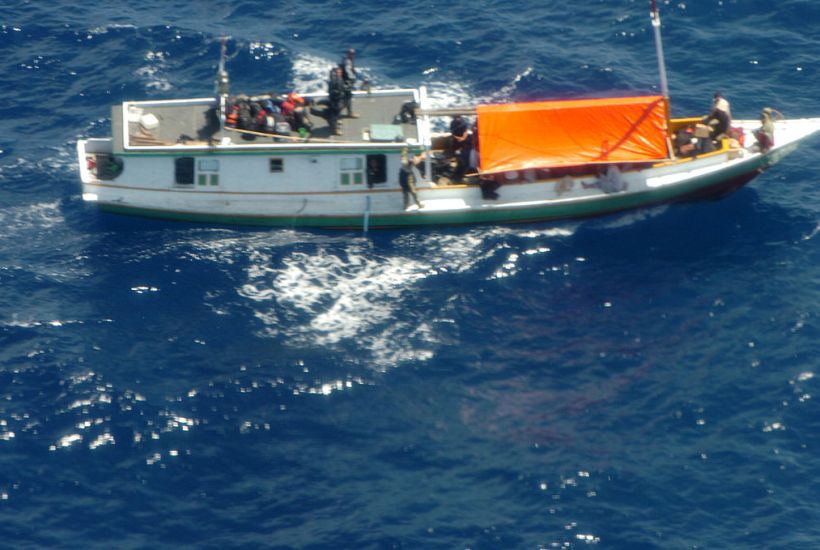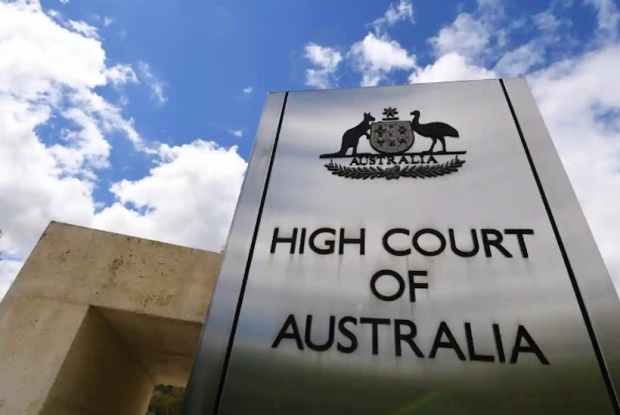The Turnbull government has gone to water over the claim by about 1900 Manus Island detainees. It could have and should have resisted this. To win anything, you need a battle plan – I suggest a 10 point plan below. And it’s not too late, even now.
It’s bad enough that illegal immigrants are going to profit and hard-working, law-abiding taxpayers pay. But what is even worse is that the government’s message to the people smugglers and their clients is that if you persist, you’ll eventually win and win well.
The illegal immigrants are to receive $70 million and their lawyers about $20 million. The deal is so shrouded in secrecy we don’t know who don’t know who will receive what.
It shouldn’t be forgotten that by the time these illegal immigrants reached Indonesia, they had lost whatever refugee status they may have once had – and many were not refugees. In any event, they gained entry into Indonesia showing their passports and presenting themselves as tourists. They were safe there. If ever they were genuinely under a threat of persecution, they were no longer in Indonesia. But then they conspired with criminals to force their way into this country. They should have all been turned back. And that would have happened had Tony Abbott been in power. We shouldn’t forget that when he announced his policy of turning back the boats, this attracted the outrage and ridicule of the political class, including certain members of his front bench. They said it would not work, but if it did, it could mean war. Well it didn’t. It worked.
Instead of rolling over at the first shot, the government should have had a battle plan attacking from a series of angles, some seeming contradictory but together being precautionary. Here is one such battle plan – and it’s not too late. It could be used to neutralise this outrage.
First, the government should have fought the case right through to the highest court in the land. This would have taken years, giving them time, valuable time, to put in place the rest of the battle plan.
Second, the government should have relied on the common sense of rank-and-file Australians and introduced retrospective legislation to provide that any such case should be heard not before a judge sitting alone, but before a judge and jury.
Third, the government should have introduced retrospective and precautionary legislation to allow it to recover damages for illegal and forcible entry, as well as all of the costs of maintaining, protecting and guarding each and every detainee. Again any legal action to recover this should also be before a judge and jury, with the right to recover any associated legal costs. The advantage of this, even now, would be that any amounts agreed to in the Manus deal could be held back as security for what could be ultimately awarded.
Fourth, even before this legislation were introduced, the government should have begun a series of actions against each and every detainee claiming damages for illegal and forcible entry, as well as all of the costs of maintaining, protecting and guarding them as well the associated legal costs. (Security could now be sought from the defendants against the proceeds of the Manus deal; this could also be guaranteed by special legislation.)
Fifth, the government should have introduced separate retrospective legislation to remove the right of any non-citizen or non-resident to sue in the courts concerning detention by the Commonwealth or for anything which may have occurred in such detention wherever that detention may have occurred.
Sixth, the government should have introduced separate retrospective legislation denying the award of legal costs in relation to claims by non-citizens or non-residents in relation to detention.
Seventh, the government should have introduced separate retrospective legislation providing that the liability for any award of legal costs, as well as the provision of security for legal costs likely to be incurred in the future, against non-citizens or non-residents relating to detention should extend to each and every lawyer acting in the case. This should include every partner and every shareholder, in any legal firm involved in the case. Moreover, there should be no requirement that the government first attempt to recover the sums from the plaintiffs. If they wished, they could obtain security from the lawyers first.
For an example, imagine a long case like Manus, finally lost in the High Court with an award of, say, $30 million for costs. The government could then not only recover this from the lawyers, it could have along the way sought substantial security for costs from them.
At the time all this legislation was introduced, the government should have indicated that if any were to be rejected or unduly delayed in the Senate, the legislation would be reintroduced strictly after three months, even if this required a recall of the Senate. The government should have also indicated that if any piece of legislation were to be rejected or unduly delayed again, the Prime Minister would approach the Governor-General to request that a double dissolution election be held at the earliest possible date. (Theresa May failed to learn from Malcolm Turnbull that people soon lose interest if you unnecessarily drag out the election and you do not campaign well.)
Eighth, at the same time as the other legislation is introduced, the government should have introduced a bill for a referendum for a precautionary amendment to the Constitution. This would be to head off an unnecessary and lengthy High Court case by the detainees arguing that the government had no power to do this and thus protect the borders. Doing this would be unprecedented, but that’s no reason why a government with backbone should do this to protect the borders. Again, the government should have indicated that if the Senate were to reject this, it would be presented again with the other legislation immediately after three months had expired. If it were to be rejected again, it would be presented with other legislation along with the double dissolution. (The Constitution specifically envisages this.)
Ninth, the government should have kept strictly to every part of this timetable. Most importantly, it should have done everything that it had threatened to do. People take notice of you if you do this, especially criminals and the clients of criminals.
Tenth, at every point in any litigation the government should have insisted on the provision of full security for legal costs to be paid. This should obviously have been sought from the lawyers who would have been most able to pay. The government should have abandoned any constraints normally accepted on its behaviour as a so-called “model plaintiff”. In cases like this, going to the very heart of the national interest – the security of its borders – a government must at all time play hardball. This would have sent the message to the world that Australia was no longer led by soft-touch politicians.
Had the Turnbull government behaved with the sort of strengths we would expect – the strengths demonstrated by the Abbott government – there can be no doubt it would have won such a double dissolution election as well as the referendum. As on similar occasions, there is palpable outrage across the length and breadth of the country, and not only among Conservative voters but also among Labor voters, that tough measures must be taken to protect the borders and that the criminal people smugglers and their clients should never be rewarded.
All is not lost even now. If the government were to now follow this plan, they could legally recover every cent of the Australian taxpayers’ $70 million they have so foolishly agreed to hand over to the illegal immigrants.
If Malcolm Turnbull can’t do this, the party room should do what they probably itching to do and put Tony Abbott back in power. He is undoubtedly a strong leader – he has already demonstrated that with other countries lining up to copy his policies.
David Flint is an emeritus professor of law.
Got something to add? Join the discussion and comment below.
Got something to add? Join the discussion and comment below.
Get 10 issues for just $10
Subscribe to The Spectator Australia today for the next 10 magazine issues, plus full online access, for just $10.


























Comments
Don't miss out
Join the conversation with other Spectator Australia readers. Subscribe to leave a comment.
SUBSCRIBEAlready a subscriber? Log in